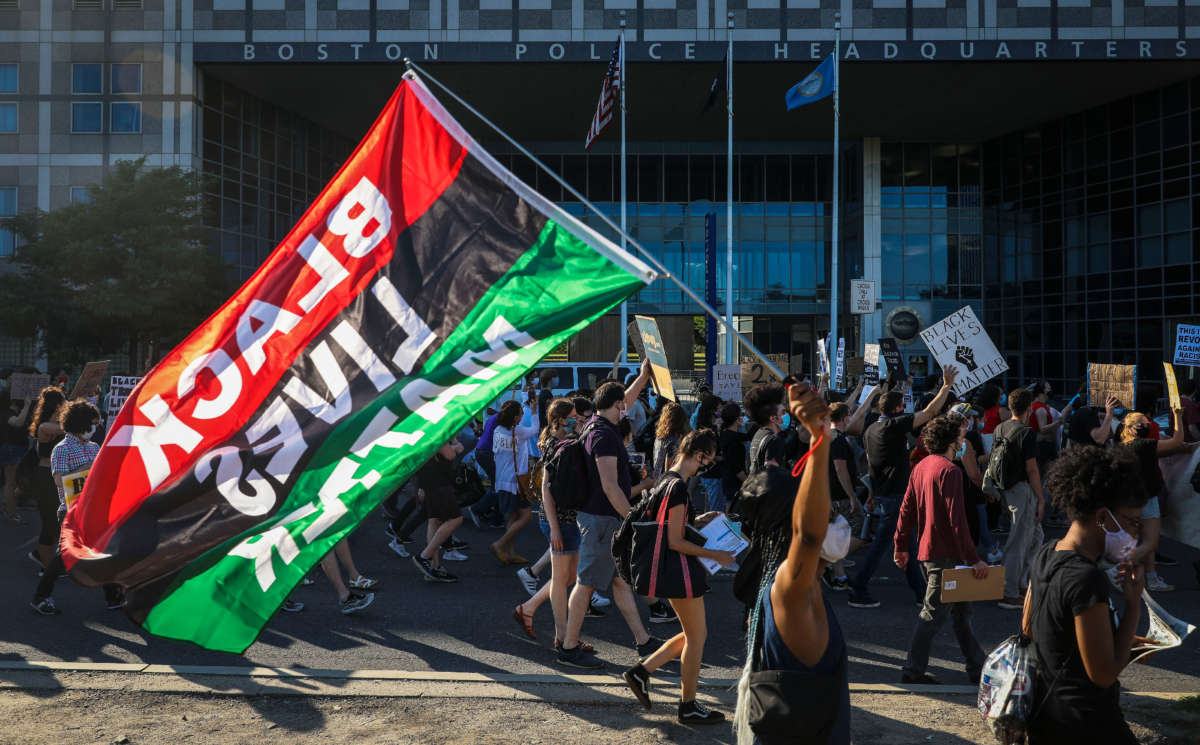On April 3, 1968, Dr. Martin Luther King Jr. stood up at the Mason Temple in Memphis and spoke in support of the city’s 1,300 sanitation workers. The workers were on strike to fight for the ability to unionize, put better safety standards in place, and their right to a livable wage. They had stopped work, partially in response to the deaths of Echol Cole and Robert Walker, who had been crushed to death by a garbage truck while on the job.
On that day, on the eve of his assassination, Dr. King said, “We’ve got to give ourselves to this struggle until the end. Nothing would be more tragic than to stop at this point, in Memphis. We’ve got to see it through. And when we have our march, you need to be there… Be concerned about your brother. You may not be on strike. But either we go up together, or we go down together.”
Today, workers across the country are planning to leave their posts, together.
In this moment of economic precarity for so many of us, what could motivate people to strike, or walk out of work?
Exasperation, and a desire for reckoning.
The current pandemic of COVID-19 and the generational pandemic of violence against Black lives have brought some truths into sharp relief. As tens of millions of people have worked without personal protective equipment or paid sick time, it has become clear to us all: Workers, those we have recently taken to calling “essential,” are the cornerstone of our social and economic well-being. These are disproportionately Black and brown workers. As we enter further and further into an economic depression, it’s become clear that for so many communities, it is time to take action that pushes elected officials and CEOs to dismantle racism and white supremacy in the workplace. Our fights for racial, economic, health care, gender, climate and immigration justice are all connected. We are connected, as well.
So today, we #StrikeForBlackLives.
In the spring we saw action after action to demand personal protective equipment (PPE) in the midst of a global pandemic. In the summer, unprecedented uprisings and protests happened all over the country to defend Black lives. We can’t stop. On July 20, tens of thousands of workers will take action. The strike comes in the middle of a summer focused on building political power. At the end of August, the Black National Convention will channel the energy from the streets into a meeting place for hundreds of thousands of Black folks and our allies to build Black political power and make a plan to shape the national agenda.
Our aim is clear: By bringing together workers of all races to exercise our power together, we are linking our racial and economic justice demands. We are demonstrating the power of people who organize and join together in unions. We are the backbone of this country, and we are calling for a reckoning.
What are we calling for, as we strike?
We are calling for justice for Black communities, with an unequivocal declaration that Black Lives Matter. This is the first step in winning justice for all workers. All these issues, from economic rights to education, housing and criminal justice reform, must start by listening to Black workers and leaders.
We are calling on elected officials and candidates at every level to use their executive, legislative and regulatory authority to begin to rewrite the rules and reimagine our economy and democracy. We need fair and safe voting in-person and by mail so everyone can fully participate in our democracy. As we continue to address the COVID-19 pandemic, we must protect the health and safety of all workers, returning people to work and into public spaces with a rational, safe, well-managed plan designed with workers and community stakeholders.
We are calling on corporations to take immediate action to dismantle racism, white supremacy and economic exploitation wherever it exists, including in our workplaces. This includes corporations raising wages, allowing workers to form unions, providing health care, sick leave and expanded health care coverage to people who are uninsured or have lost coverage as the result of losing their jobs during the COVID-19 pandemic, child care support and more.
And finally: Every worker must have the opportunity to form a union, no matter where they work. Every worker in America must have the freedom that comes from economic security and equity in opportunity.
The time of ignoring the deadly impacts of structural racism in America’s economy and democracy is over. We are striking and walking out together, as people of different backgrounds and races, to challenge greedy and corrupt corporate power, and all the elected officials who side with corporations over their own constituents. We are demanding solutions from government that center communities of color and dismantle racist policies to make sure every family is healthy, safe and secure, no matter our race, our immigration status, our job or where we live.
Join us in defending the truth before it’s too late
The future of independent journalism is uncertain, and the consequences of losing it are too grave to ignore. To ensure Truthout remains safe, strong, and free, we need to raise $43,000 in the next 6 days. Every dollar raised goes directly toward the costs of producing news you can trust.
Please give what you can — because by supporting us with a tax-deductible donation, you’re not just preserving a source of news, you’re helping to safeguard what’s left of our democracy.
